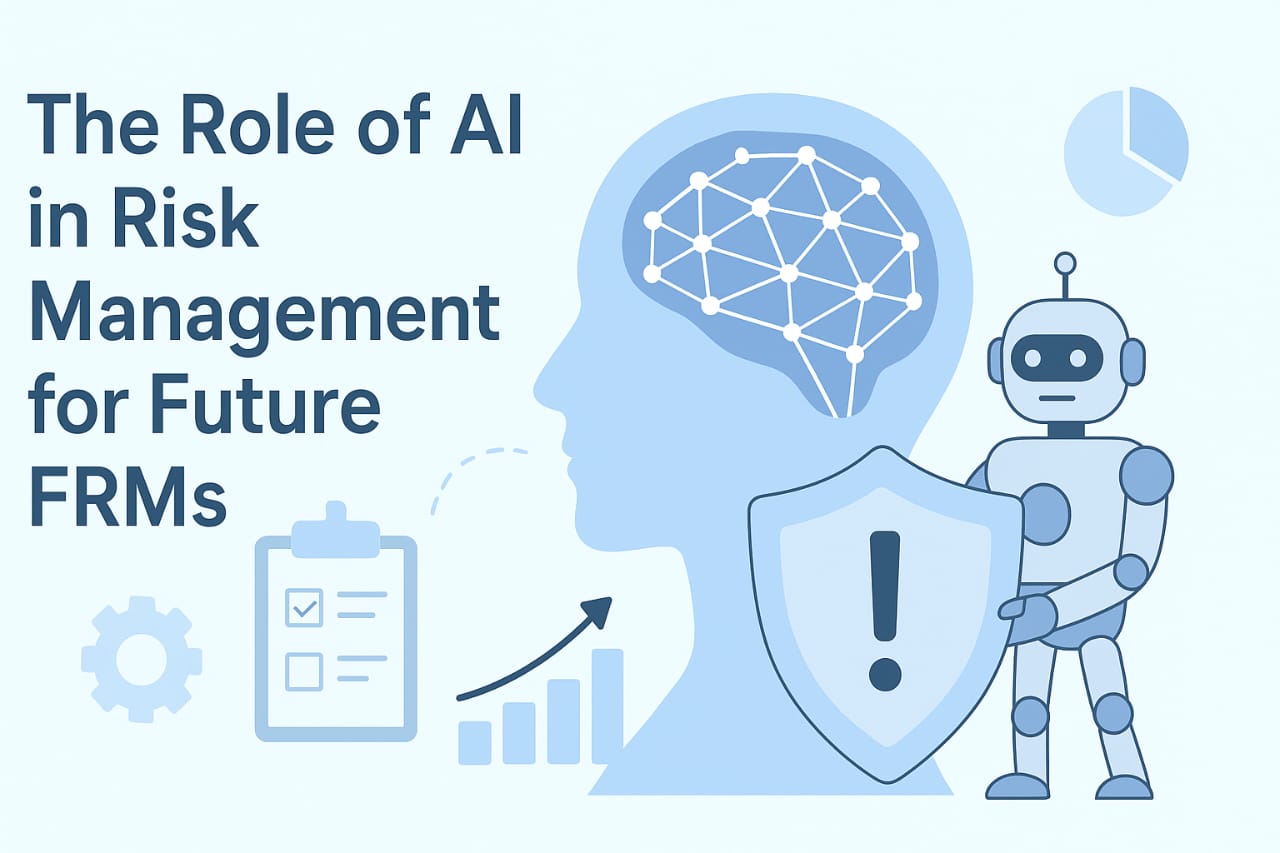
Blog
The Role of AI in Risk Management for Future FRMs

Why AI Matters for Tomorrow’s Risk Managers
The financial industry is moving faster than ever, and AI in Risk Management is no longer a niche tool; it’s becoming an industry standard. For Future FRMs (Financial Risk Managers), understanding Artificial Intelligence isn’t optional; it’s essential for staying competitive in a technology-driven market. From detecting fraud in real time to predicting market volatility, AI is reshaping how risk is identified, assessed, and mitigated.
1. The Rising Role of AI in Finance and Risk Management
AI in Risk Management works by processing massive datasets, identifying patterns, and flagging potential threats far more efficiently than human analysis alone. In finance, this means:
- Faster decision-making with predictive analytics.
- Real-time monitoring to prevent compliance breaches.
- Enhanced fraud detection using anomaly detection algorithms.
These capabilities allow banks, hedge funds, and investment firms to manage risks proactively, rather than reacting after a crisis occurs. This is why the role of AI in finance is now central to risk strategies across the globe.
2. How AI is Changing Risk Management for FRMs
AI is shifting the FRM role from purely analytical to tech-enabled strategic leadership. Here’s what’s changing:
- Automated Data Analysis: Machine learning models handle massive historical datasets in minutes, uncovering trends humans might overlook.
- Scenario Simulation: AI-powered models can simulate thousands of “what if” scenarios to test market shocks and regulatory changes.
- Early Warning Systems: Predictive AI tools help institutions prepare for credit defaults, liquidity issues, and operational failures before they escalate.
These tools aren’t replacing FRMs; they’re amplifying their decision-making power.
3. The Future of Risk Management with AI
Looking ahead, risk management will increasingly rely on AI-driven forecasting and natural language processing (NLP) to process unstructured data like news reports, analyst commentary, and even social media sentiment. Future FRMs will need to be skilled in interpreting AI-generated insights and aligning them with regulatory requirements.
In this future landscape, FRM and Artificial Intelligence go hand-in-hand, with technology enabling more agile, accurate, and compliant decision-making.
4. AI Skills Every Future Risk Manager Needs
To remain competitive in this AI-powered environment, future FRMs should focus on building AI skills for risk managers, including:
- Data literacy: Understanding how datasets are collected, cleaned, and interpreted.
- Model interpretation: Knowing the strengths and limitations of AI models.
- Ethics and compliance: Navigating the regulatory implications of AI in finance.
- Collaboration with data scientists: Effectively working alongside technical teams to turn models into actionable insights.
These skills will differentiate candidates in a rapidly evolving job market.
5. Why AI Literacy Is Now a Core FRM Competency
AI isn’t replacing human judgment; it’s enhancing it. A future-ready FRM will be someone who:
- Understands artificial intelligence in financial risk applications.
- Can bridge the gap between advanced analytics and strategic decision-making.
- Uses AI tools to improve both operational efficiency and risk mitigation outcomes.
Institutions will increasingly expect FRMs to speak the language of AI while upholding the principles of sound risk management.
Conclusion
Artificial Intelligence is transforming how risk is managed, and future FRMs who master AI tools will lead the industry forward. Whether you’re preparing for your FRM certification or seeking to upskill, AI literacy is no longer optional; it’s your competitive edge.
If you’re ready to future-proof your FRM career, explore our FRM Course at Fintelligents and gain the skills needed to thrive in the AI-powered world of risk management.
FAQs
1. How is AI used in risk management today?
A: AI is used for predictive analytics, fraud detection, compliance monitoring, and real-time risk assessment in financial institutions.
2. Will AI replace FRMs?
A: No. AI enhances FRM capabilities but still requires human oversight, judgment, and strategic interpretation.
3. What AI skills are most valuable for future FRMs?
A: Data literacy, model interpretation, ethical AI use, and collaboration with technical teams are essential.
4. Why is AI literacy important for FRMs?
A: It allows risk managers to leverage advanced tools, make better decisions, and stay competitive in a technology-driven finance sector.
5. Can learning AI improve my FRM career prospects?
A: Yes. AI knowledge is increasingly sought after by employers, making you more valuable in the job market.
